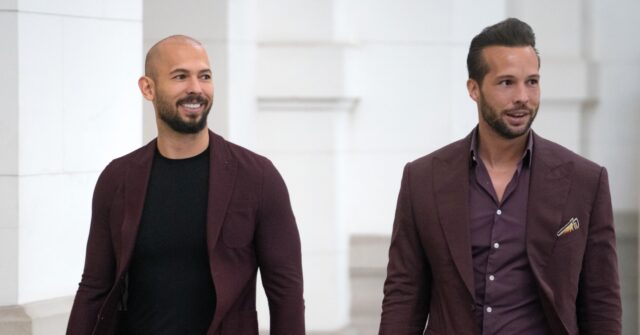The Bucharest Court of Appeal made a significant ruling on a high-profile human trafficking case involving social media influencer Andrew Tate, his brother Tristan, and two Romanian women. The court indicated that the case could not proceed to trial due to multiple legal and procedural irregularities identified in the prosecution’s approach. This ruling follows the arrests of the defendants two years ago, who are accused of forming a criminal organization to exploit women sexually, with Andrew Tate facing an additional rape charge. While this decision is a setback for Romania’s anti-organized crime agency, DIICOT, the case is not closed, as prosecutors may present new evidence or revise existing charges.
The ruling was prompted by an appeal from Tate’s defense team, which argued that the prosecution has failed to provide credible evidence. Spokesperson Mateea Petrescu highlighted that the court determined significant flaws in the legal process and expressed concerns over the integrity of the investigation. Last year, the Tate brothers and the two Romanian women were formally indicted, but a trial date has yet to be set. Following the recent court decision, Andrew Tate criticized the prosecutors for their inability to substantiate their accusations after years of investigation. He claimed that the allegations against him have damaged his reputation and freedom, yet he professed to have remained resilient throughout the ordeal.
Significantly, the appeals court’s previous ruling in November mandated the exclusion of certain evidence, including testimonies from alleged victims and statements made by the Tates, marking them as inadmissible. Additionally, it noted flaws in how the charges were communicated to one alleged victim and failed to provide concrete details regarding asset confiscations. The decision not only provides a legal victory for the defendants but raises questions about the effectiveness of the prosecution’s case and the adherence to procedural justice.
Eugen Vidineac, the attorney representing the Tate brothers, described the ruling as a decisive moment in the legal battle and affirmed the integrity of the judicial system. He emphasized that the decision serves as a reminder against attempts to manipulate the truth and silencing efforts. Amid this tumult, Andrew Tate has maintained a significant social media presence, amassing over 10 million followers, where he has vocalized his views on a supposed political conspiracy orchestrated to discredit him.
In a separate legal matter taking place in the UK, a British court has ruled that authorities can confiscate £2.6 million (approximately $3.3 million) from the Tate brothers as restitution for years of unpaid taxes. Andrew Tate has condemned this move as theft, framing it as part of a broader campaign against individuals who challenge established systems. Compounding their legal troubles, in August, Romanian authorities launched a second case against the brothers, which involves allegations of human trafficking involving minors, alongside related charges like money laundering.
Throughout their legal challenges, the Tates have experienced significant restrictions, including a prolonged detention period followed by house arrest, which limited their movements to specific geographic areas within Romania. The situation remains dynamic, with the ongoing potential for new developments in both Romanian and UK courts, as the Tate brothers continue to navigate their legal predicaments amidst a highly publicized and contentious backdrop.

